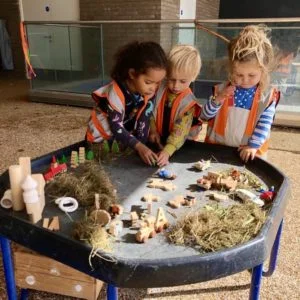There is no end to the literature on play and how this contributes to child and adult well being. However new science reveals regular play is an essential child activity laying the foundations for self-regulation and thriving later in life. Here are 3 things to think about based on the latest podcast produced by Dr Andrew Huberman, Neuroscientist and Opthamlogist at the Stanford University School of Medicine (Using Play to Rewire and Improve your Brain 7 February 2022) :
PLAY releases self-made opioids
Science reveals that play stimulates the brain stem (the mammalian part of the brain) to release self-made opioids (yes that’s right; opioids that dope you up but these are self-made ones as opposed to ones you get from opium!). These opioids not only make you feel great, but an abundance of them allows the brain circuitry to start seeing and exploring many more possibilities as to how we interact with our environment, others around us and how our play identities shape the future of who we are formed. This opioid release and its abundance allow for the child and decision making part of the brain to work better.
PLAY is most beneficial when done in low stakes, low stress but focused way
Science reveals that the playful mindset is not the Tigger character from Winnie the Pooh, but is about expanding the number of outcomes in a playful and focused way. Play from an early age allows us to be flexible and expand different possibilities. For this brain circuitry to operate in the most optimal way, the stakes need to be low and the stresses need to be very low too. This is very interesting evidence as it can then be taken to support why children need less stress and fewer outcomes-based education. The process of exploration is key and when done effectively in a low stakes/ low adrenaline way is not only the best for opioid release but also the best development tool – as opposed to whether our children can read and write fully by the age of 5 (outcomes-based education).
PLAY in childhood is the foundation for neuroplasticity (the brain changing and adapting) in childhood and adult life
As Charles Darwin states: It is not the most intellectual of the species that survives; it is not the strongest that survives, but the species that survives is the one that is able to adapt to the changing environment in which it finds”. A mode of play with low stakes, low adrenaline but some focus allows the decision making part of our brain (prefrontal cortex) to truly expand our capabilities over time. Collaborating and experimenting within groups in low stakes and playful ways advances our understanding of one’s self and the world around us helping us regulate within our social setting. This is fundamental for how we go about our day and learn the rules of life. These are the gates for the holy grail of neuroplasticity (learning and progressing in life and expanding the number of things we can learn further down the line). When we engage in playful behaviours, we adapt and move away from rigidity and embrace the evolution of life. There is even evidence that adults that maintain a playful stance (low stakes, some focus) can also continue to advance neuroplasticity much later into adulthood and older age.
So with all that – what are we waiting for? Let’s get playing!
For more personalised discussion on supporting your child in their early years and for choosing a setting please click here to speak to our team who will be happy to support you.
Play play play – all the way!







